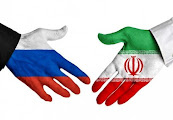An Israeli farmer and four foreign agricultural workers were killed when
rockets landed near Metula, a town on the border with Lebanon.
Later, an Israeli woman and her adult son were killed in an olive grove near
Kibbutz Afek, on the outskirts of the coastal city of Haifa.
Hezbollah said it had fired barrages of rockets toward the Krayot area north of
Haifa and at Israeli forces south of the Lebanese town of Khiam, which is
across the border from Metula.
The Israeli military identified two projectiles crossing from Lebanon and
falling in an open area near Metula on Thursday morning. Four foreign workers
who were killed were all Thai nationals.
The military established the zone at the end of September, just before it
launched a ground invasion of Lebanon with the aim of destroying Hezbollah
weapons and infrastructure.
Thursday’s second rocket attack reportedly hit an agricultural area near
Kibbutz Afek, which is about 65km (40 miles) south-west of Metula and 28km from
the Lebanese border.
The military said a total of 55 projectiles were fired towards the Western
Galilee region, where the kibbutz is located, as well as the Central Galilee
and Upper Galilee in the early afternoon. Some of the projectiles were
intercepted and others fell in open areas, it added.
The deadly rocket attacks in northern Israel came as two US special envoys met
Prime Minister Benjamin Netanyahu in Jerusalem to discuss a possible ceasefire
deal to end the war with Hezbollah.
Israel went on the offensive against Hezbollah - which it proscribes as a
terrorist organization - after almost a year of cross-border fighting sparked
by the war in Gaza.
It said it wanted to ensure the safe return of tens of thousands of residents
of northern Israeli border areas displaced by rocket attacks, which Hezbollah
launched in support of Palestinians the day after its ally Hamas’s deadly
attack on Israel on 7 October 2023.
More than 2,800 people have been killed in Lebanon since then, including 2,200
in the past five weeks, and 1.2 million others displaced, according to Lebanese
authorities.
Israeli authorities say more than 60 people have been killed by Hezbollah
rocket, drone, and missile attacks in northern Israel and the occupied Golan
Heights.
There was no immediate comment from the Israeli military.
But dozens of paramedics and other emergency workers have been killed and
injured since it intensified its air campaign against Hezbollah five weeks ago.
The military has previously accused Hezbollah of using ambulances to transport
weapons and fighters. The IHS has denied having ties to military operations.
























